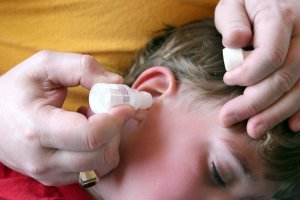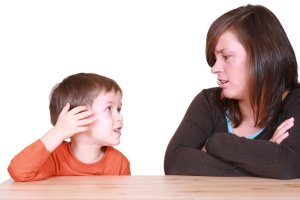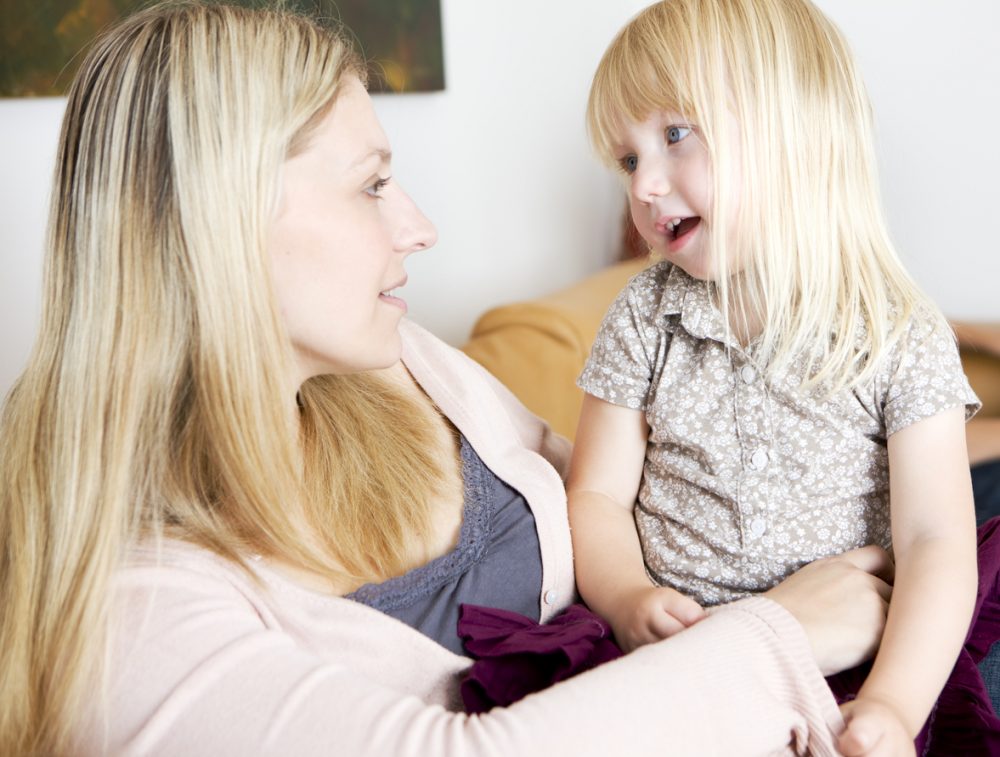Martin Burton, Ear, Nose and Throat doctor, writes for parents and carers about the latest evidence on treatments for ear discharge in children with grommets.
Page last checked 4 April 2023
Children have grommets (ventilation tubes) put in their ears for two main reasons. Either because they have persistent “glue ear” or frequent ear infections. There is a general feeling amongst specialists that grommets don’t usually cause much trouble. If you ask them to estimate how many children will have an episode of discharge – liquid (sometimes smelly but not always) leaking out of the ear – they are likely to reply “not many”. Is this true? Or do the specialists based in hospitals just not hear about children being taken to their GPs with leaking ears, and so are unaware of it. Whilst GPs, on the other hand, are only too well aware that this happens quite often.
Grommets and ear discharge
One of the things that the Cochrane ReviewCochrane Reviews are systematic reviews. In systematic reviews we search for and summarize studies that answer a specific research question (e.g. is paracetamol effective and safe for treating back pain?). The studies are identified, assessed, and summarized by using a systematic and predefined approach. They inform recommendations for healthcare and research. Interventions for children with ear discharge occurring at least two weeks following grommet (ventilation tube) insertion (November 2016) showed is that between one quarter and three quarters of children with grommets will get some ear discharge, when you look for it carefully enough. And this is when you ignore whatever might happen in the first two weeks after the operation. This is thought to be due to a middle ear infection.
When children don’t have grommets, a middle ear infection very often involves a lot of pain and children can wake in the night screaming with it. When the ear drum bursts – as it often does – the pain goes because the pressure producing pain is released. The ear then discharges.
When children have grommets there is no chance for pressure to build up. So some children get no pain at all or it is less than when you don’t have a grommet. But there is still some discharge.
What are the choices when your child’s ear leaks?
Some people have suggested that you just need to “watch and wait” and it will all go away on its own. But not everyone agrees and all sorts of things have been tried over the years: antibiotic tablets or liquid that children must swallow and ear drops containing antibiotics and – sometimes – also steroids.
There is always a general feeling that nobody wants to give their children antibiotics if they can avoid it. It is not uncommon when you take antibiotics by mouth, to get complications such as rashes and diarrhoea. If we, as a community, take too many antibiotics, it will make bacteria resistant and that isn’t good for anyone.

So what is the best treatment?
The Cochrane Review looked at this. It showed that antibiotic drops (with or without steroids mixed in) were better than swallowed antibiotics. Almost all children (95%) ended up with dry ears at the end of two weeks with drops, compared to 56% with oral antibiotics. These numbers are from just one scientific studyAn investigation of a healthcare problem. There are different types of studies used to answer research questions, for example randomised controlled trials or observational studies. but we can be reasonably certain about the results and relatively confident that drops really are better.
What about complications?
Are drops less likely to cause these? The review didn’t find any difference between the chance of getting complications whichever type of treatmentSomething done with the aim of improving health or relieving suffering. For example, medicines, surgery, psychological and physical therapies, diet and exercise changes. you used. But this could be for two reasons. Either there really isn’t a difference – and the drops are as likely to cause rashes and diarrhoea as the tablet. Or the study just wasn’t big enough to find a difference. This is quite a common thing to see in scientific studies like this. No difference is found between two groups of patients when in truth (if only we could get at “the truth”) there is a difference but it is a small one. The smaller the number of things you are looking for in any study – in this case “complications” – the more people you need in your study to detect a difference.
What did the report say about other treatments?
Ear drops containing antibiotics and steroids worked better than simply watching and waiting. Or using drops that just had steroids in them.
So, on balance, it looks like antibiotic-steroid drops are the best thing to use. But…
…a word of caution
There is one important and very practical thing to bear in mind. The type of antibiotics included in some ear drops are the sort that can damage the inner ear and affect hearing and balance. This type of antibiotic is referred to as an “ototoxic” one as it is “toxic” to the ear (“oto-“ being the Greek word for ear).
For this reason, the leaflet in the box with the ear drops often advises that drops with antibiotics that might be ototoxic aren’t used when a person has a hole in the ear drum). And isn’t a grommet just that – a type of hole in the ear drum? Specialists have considered this carefully. It is known that a middle ear infection can itself cause hearing and balance problems because the infection is “toxic” to the ear.
Weighing things up

So how do we weigh things up: both a middle ear infection and ototoxic ear drop treatments for that infection can be harmful? Specialists believe that, on balance, the risks of damage to the ear are greater from a middle ear infection with fluid leaking out of the ear than from the drops. So the drops are the “lesser of two evils” provided they are used for a short period and under direct medical supervision. The opposite is also true. It is risky and not at all sensible to use drops containing antibiotics that might be ototoxic, if there is no infection there in the first place, or for long periods. The longer you use the drops for, the greater the chance of harm.
“Mummy…!”
So when young Archie says, “Mummy – my ear’s wet again!”, how might you respond? Perhaps pause for a while to see if the problem sorts itself out. But if not, talk with your GP and decide together whether or not your child should have a short course of antibiotic-steroid ear drops.
Martin Burton reports personal fees from OXENT Ltd, outside the submitted work.
Link:
, , , , . Interventions for children with ear discharge occurring at least two weeks following grommet (ventilation tube) insertion. Cochrane Database of Systematic ReviewsIn systematic reviews we search for and summarize studies that answer a specific research question (e.g. is paracetamol effective and safe for treating back pain?). The studies are identified, assessed, and summarized by using a systematic and predefined approach. They inform recommendations for healthcare and research. 2016, Issue 11. Art. No.: CD011684. DOI: 10.1002/14651858.CD011684.pub2.
A plain language summary of this review may be found here.



It’s great that you mentioned how there is no chance for pressure to build up when children have grommets. We’ve noticed some issues with our daughter’s ears and we definitely need to have her treated. So with that in mind, we should probably ask for a paediatric grommets surgery.
does having grommets make the child very sensitive to loud noises?
My Grandchild often covers his ears complaining “it is too noisy’ this can be from children at day care playing or a kitchen utensil switched on…his grommets are still in place after 9 months and today he has green discharge from the right ear where the grommet is still in place
Hi everyone, I am 33years old and suffered all my life with glue ear and had many grommets, had I my last op about 10 years ago and I am still left with one in my right ear. Since November 2019 I have had the same ear infection. That is not why I am writing this I am looking for help on writing an essay about how I found it difficult in school while I had grommets and without grommets. I am trying to research as much as I can. I have come to a halt in finding out how children have dealt with grommets and being back in a class with 30 or more children. Me personal I found it really hard because all sounds changed and things were a lot louder and having all these people around me, I found it hard to listen to just one person at a time with all the background noise and wanted to be alone same where quite, How did other people find growing up? How are your child/children coping with this?
I had them around nine times when I was a kid ,38 now and to honest hearing seems to have good days and bars days, I was told when younger couldn’t have anymore because of the scaring and perforation f the ear drum doesn’t help getting punched in the ear after op that was horrible, yeah but more to the point, my parents told me I was not talking at a early age around 3 I think , that’s when I was operated on (first time) but as the years went on had them in every year, it became the norm it would get to the point where I couldn’t hear anything around me ,had to look at people’s mouths to understand what they was saying, looked forward to the op , and yeah once op was done everything seemed so loud cars sounded like aeroplanes taking of washing machine sounded bad to best sound was the clicking of Lego I’ve got so much more to say about it was a big part of my life contact me for more thanks
I am desperate to find a cure for my son , he has a second pair of grommets and adenoids removed , but after a swim he had water stick in his ear then Now he has leacky ear .
GP says that we just watch and see , but I am worried about his inner ear and maybe lose of hearing .
He is only 7 yers old and we had quite lots of problem with my sons ENT .
I’m an adult with gromits, I take a clove of garlic cut it and squeeze the garlic while rubbing the Q-tip cotton swab on it to soak up the garlic juices into the Q tip then rub it around the inside of the ear carefully.
Garlic is an anti bacterial and will kill bacteria.
Never use the same Q-tip on both ears as you will infect the other ear.
Marc, Thank you for the advise. I was hoping to find a home remedy. I would discuss the use of garlic with my ear nose throat doctor nyc and if it has no side effects, I would definitely follow your advise.
Hi there,
Basically my son is 7 years old, and he has had constant ear infection for the last 2 years, he has been given amoxicillin god knows how many times now, he had his grommets fitted in December, and we’ve gone 4 months without any infections….. suddenly the last 3 weeks his left ear which is his glue ear has been leaking yellowish fluid constantly….. the doctor gave him amoxicillin again, a 2 week course and took a swab of his ear, he finished his course yesterday.
Last night he said he could feel bubbling in his ear, he woke up this morning and he’s got bright red blood dripping from his ear which he’s has all day, he’s never had blood like this before, I rang the doctors and they told me his Swab results have only just come back, he’s got 4 types of infection in his ear, and amoxicillin only clears up 2 of the infections, so he’s now been put on a different antibiotic.
I am just so worried about how much antibiotics he has been on in the last 2 years, and so worried about bright red blood dripping from his ear all day today, luckily the GP is going to look at him tomorrow.
Has anyone got any advice please on why his ear is leaking blood? And if I should be extremely worried?
Thanks
Dear Megan,
Wishing you and your son all the best for his GP appointment today. You might also want to consider calling 111 if you ever feel your son is in need of more urgent attention.
Best wishes, Selena [Editor]